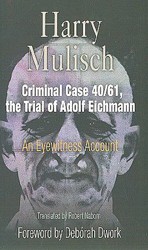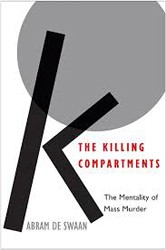“From the firstmoment, when it had not yet become known to the wider world but, rather,unfolded day by day in the hidden recesses of nameless, obscure places and wasthe secret of the accomplices, victims and henchmen, from that first moment theHolocaust brought with it a horrible dread — a dread that it might be forgotten.This dread was greater than the horrors, than the individual lives and deaths,than the avid demand for justice.”
The Holocaust as Culture is the English translation of a 1992 lecture delivered by Imre Kertész, a Hungarian writer and Holocaust survivor who was awarded the 2002 Nobel Prize in Literature “for writing that upholds the fragile experience of the individual against the barbaric arbitrariness of history.” This 2012 publication is delivered in three parts: an essay on Kertész and his written works by the translator, Thomas Cooper; an interview between Cooper and Kertész; and finally, “The Holocaust as Culture” itself.
The introductory chapter is both insightful and illuminating; understanding that readers in general are not as familiar with Kertész as they are with other Holocaust memoirists, Cooper deftly exposes the core of his subject’s philosophy and body of written work in twenty-six short pages, interspersing excerpt with summary, biography, and analysis so that even those who have never heard of Kertész before encountering this slender volume feel well-versed enough in his literature to grasp the full context of the two subsequent sections — but still deprived enough to immediately seek out the originals (Jewish Book Council has reviewed The Pathseeker and Fiasco; Fateless and Kaddish for an Unborn Child touch a bit closer to the Holocaust) — while those who have can still engage with the translator’s reading of the texts.
On the whole, The Holocaust as Culture is an artful collaboration between writer and translator. They jointly maneuver the paradox of Kertész’s literary status: that his prominence is enabled and even defined by the lack of recognition afforded him — his “irrelevance,” as they call it. (Had he received more notice as he was writing during the second half of the twentieth century, his works would have gone entirely unpublished, censored by the reigning Soviet government for refusing to write its propaganda into his narrative; so long as Kertész and his memoirs remained in cultural obscurity, he could write and even distribute what he wished.) Yet even as they rejoice in this irrelevance, both contributors successfully insert Kertész into the canon of Holocaust literature and thought; not just by direct references, but by the selection of content and turn of phrase do Cooper and Kertész call to mind the musings of the most prominent voices of Holocaust representation. The ideas central to The Holocaust as Culture—that all European history, culture, and ethics have been irrevocably affected by the Holocaust, itself an aberration of history that redefined modern ethics and defied all cultural media — are so eloquently crafted that they remain resonant even now, 20 years since the essay’s original presentation. And it is precisely this enduring relevance about which Kertész writes.
“But does this condition not seem a reminiscent of the general and cosmic condition of humankind as we have come to know it through the interpretation of modern philosophy and anthropology? […] The survivor is merely the tragic bearer of the human condition of the era, one who has experienced and endured Auschwitz, the apogee of that condition, its presence looming over the horizon behind us like the horrific vision of a deranged mind; and though increasingly distant, its outline, far from dwindling, seems clearer, stronger. It is quite apparent today that survival is not the personal problem of those who remained. The long, dark shadow of the Holocaust spreads over the whole of civilization which must now live with the burden and consequences of what happened.”
Nat Bernstein is the former Manager of Digital Content & Media, JBC Network Coordinator, and Contributing Editor at the Jewish Book Council and a graduate of Hampshire College.





